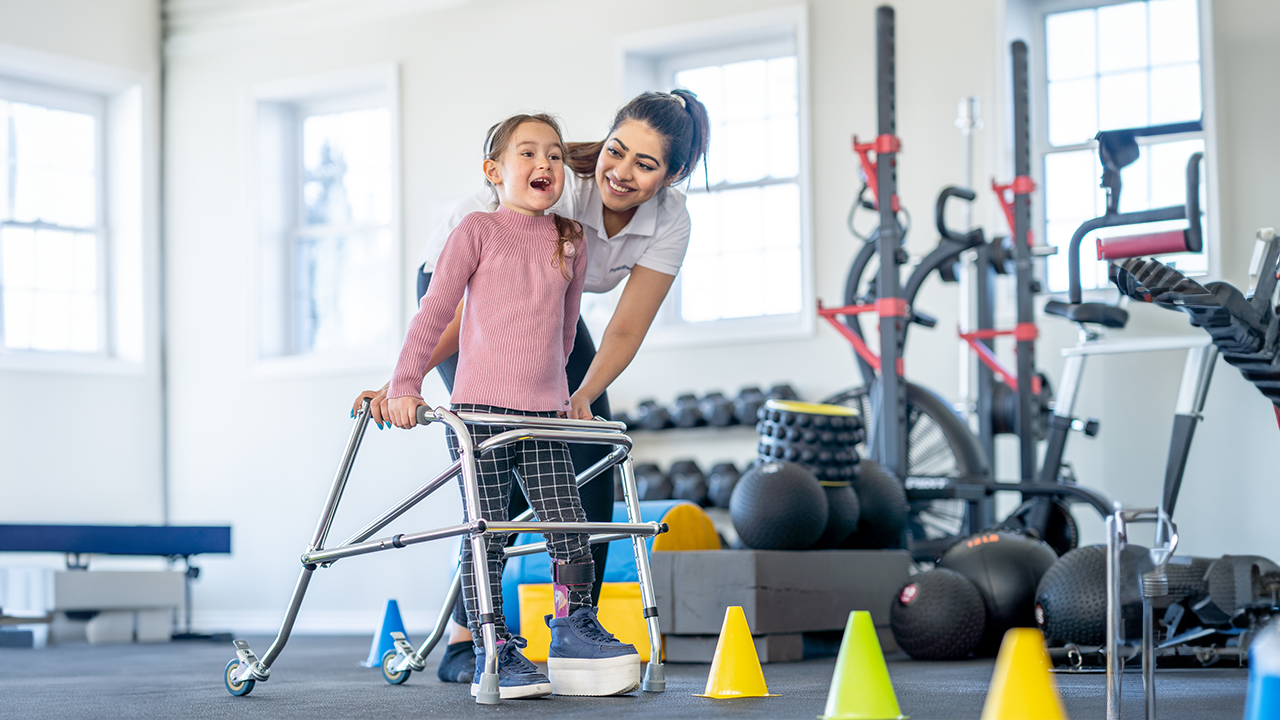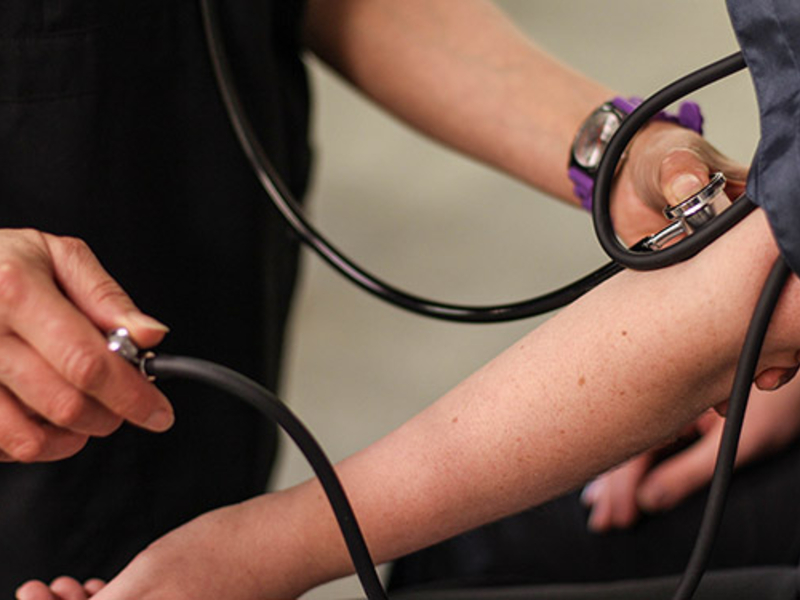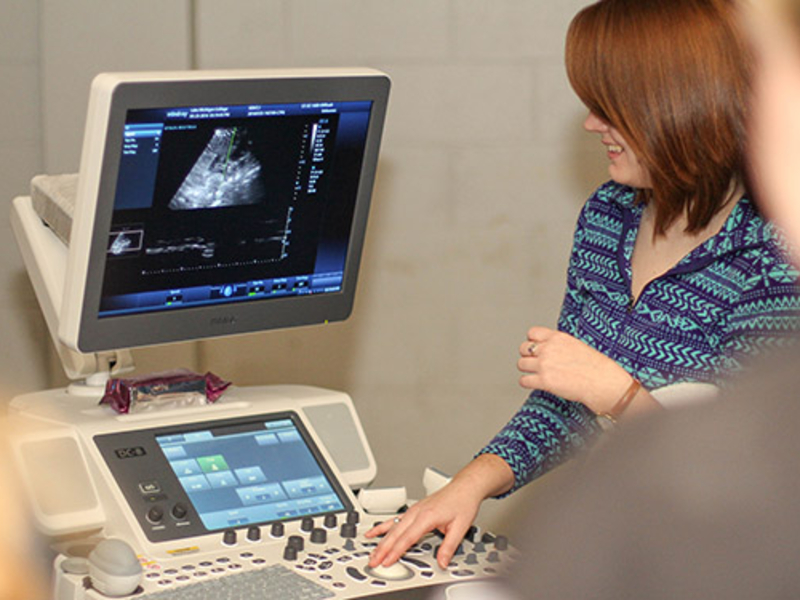Lake Michigan College’s PTA program will launch in Fall 2027, with applications opening February 1, 2027. Admission is selective, with up to 18 students accepted each fall.
To be considered for the PTA program, applicants must meet the requirements in the PROGRAM APPLICATION tab below by the end of the Spring semester during the application year. The summary below outlines the key steps. For complete details, please refer to the PTA Advising Guide.
Students complete 72 credit hours to earn an Associate in Applied Science (AAS) degree, Physical Therapist Assistant.
| GENERAL EDUCATION AND PREREQUISITE COURSES | Credit Hours | Contact Hours |
| ENGL 101 English Composition I | 3 | 3 |
| BIOL 110 Anatomy and Physiology | 4 | 5 |
| MATH 122 Intermediate Algebra or MATH 123 Quantitative Reasoning | 4 | 4 |
| HEAL 103 Medical Terminology | 2 | 2 |
| ENGL 102 English Composition II | 3 | 3 |
| PSYC 201 Introduction to Psychology | 3 | 3 |
| EXSC 208 Kinesiology | 3 | 5 |
| Humanities/Fine Arts Elective | 3 | 3 |
| PTA PROGRAM COURSE SEQUENCE | Credit Hours | Contact Hours |
| First Semester: Fall (12 Credits) | ||
| PTA 110 Professional Practice I | 2 | 2 |
| PTA 115 Applied Biomechanics | 2 | 3 |
| PTA 120 Fundamentals of Patient Care | 4 | 6 |
| PTA 125 Musculoskeletal Interventions I | 4 | 6 |
| Second Semester: Spring (12 Credits) | ||
| PTA 140 Clinical Neuroscience | 3 | 3 |
| PTA 155 Physical Agents | 2 | 3 |
| PTA 165 Musculoskeletal Interventions II | 4 | 6 |
| PTA 170 Clinical Education I | 3 | 7 |
| Third Semester: Summer (12 Credits) | ||
| PTA 210 Cardiopulmonary Rehabilitation | 3 | 3 |
| PTA 220 Neuromuscular Interventions | 4 | 6 |
| PTA 230 Clinical Medicine | 2 | 2 |
| PTA 240 Clinical Education II | 3 | 9 |
| Fourth Semester: Fall (11 Credits) | ||
| PTA 255 Musculoskeletal Interventions III | 2 | 3 |
| PTA 260 Special Populations | 3 | 3 |
| PTA 270 Clinical Education III | 4 | 12 |
| PTA 290 Professional Practice II | 2 | 2 |
Graduates must pass the National Physical Therapy Examination for Physical Therapist Assistants (NPTE-PTA), administered by the Federation of State Boards of Physical Therapy (FSBPT), to become licensed to practice. For detailed information about the exam, visit: https://www.fsbpt.org
Lake Michigan College’s PTA program will launch in Fall 2027, with applications opening February 1, 2027. Admission is selective, with up to 18 students accepted each fall. To be considered for the PTA program, applicants must meet the following requirements by the end of the Spring semester during the application year. The summary below outlines the key steps. For complete details, please refer to the PTA Advising Guide.
-
College Admission
- Apply to Lake Michigan College.
- Submit official transcripts from your high school/GED and all colleges attended to records@lakemichigancollege.edu.
-
Required General Education and Prerequisite Coursework
- All general education and prerequisite courses must meet the required timeframes, minimum grades, and minimum GPAs as specified in the table below.
- Spring courses in progress are considered during the spring application cycle.
- One point is deducted for each retake of BIOL 110, HEAL 103, or EXSC 208; withdrawals do not affect scoring.
- EXSC 208 must be completed at LMC; transfer credit is not accepted.
- For transfer or substitution questions, consult your advisor and review DegreeWorks.
General Education Courses1 (completed within 10 years, minimum grade of C in each course, 2.50 minimum GPA) Prerequisite Courses (completed within 5 years, minimum grade of B- in each course, 2.75 minimum GPA) ENGL 101 English Composition I – 3 credits BIOL 110 Human Anatomy and Physiology2 – 4 credits ENGL 102 English Composition II – 3 credits HEAL 103 Medical Terminology – 2 credits MATH 122 Intermediate Algebra or MATH 123 Quantitative Reasoning - 4 credits EXSC 208 Kinesiology – 3 credits PSYC 201 Introduction to Psychology – 3 credits Humanities/Fine Arts Elective3 – 3 credits Notes: 1Students with a previous degree may be eligible for a general education waiver. Contact your advisor to discuss. 2BIOL 110 may require additional credits or course substitutions for transfer students. 3Acceptable Humanities/Fine Arts courses (100-level or higher): Art, Communications, Foreign Language, Humanities, Music, Philosophy, Drama, 200-level English courses, and select Honors courses (122, 171, 175, 195, 196, 204, 208, 256, 258).
-
PTA Program Information Session
- All applicants must attend a PTA Information Session within 18 months of applying.
- Sessions are held on the second Tuesday of February, April, August, and October from 4–5 PM at the South Haven Campus (Room 220).
- Students must register to attend; click here to register.
-
ATI TEAS Exam
- Must be taken within 2 years of the application deadline
- No minimum score required; points awarded based on performance
- Refer to PTA Advising Guide for preparation and registration details
-
Observation Hours
- 20 hours of observation under a licensed PT/PTA, completed within 2 years of the deadline
- May be completed in one setting; multiple settings encouraged
- PT aide/tech experience with direct patient care qualifies toward this requirement
- Verification form required
-
Direct Patient Care Experience (Optional)
- 100+ hours in a qualifying role such as PT Aide, CNA, Medical Assistant, etc.
- Must involve direct patient care; administrative roles do not qualify
- Verified experience adds 5 points to your application score
-
Program Application
- Submit the separate PTA Program Application by the deadline
Selection Process
Admission to the PTA program is selective and competitive. Each year, up to 18 students are accepted based on a point system that evaluates academic performance and completion of key requirements.
Applicants are ranked on a 100-point scale, with points awarded for prerequisite GPA, cumulative GPA, TEAS score, and optional direct patient care experience.
One point is deducted for each retake of the following prerequisite courses: BIOL 110, HEAL 103, and EXSC 208.
For a detailed breakdown of selection criteria, refer to the PTA Advising Guide.
You may use the PTA Application Scoring Calculator to estimate your application score. Final scores are verified by the program upon review of all submitted documentation. Meeting minimum requirements does not guarantee admission.
The Physical Therapist Assistant program combines theoretical knowledge with practical application through dynamic, student-centered learning. All PTA courses are taken in a specific sequence and are primarily delivered face-to-face. While most instruction occurs in person, some courses include online components such as digital resources and synchronous or asynchronous learning activities.
Classroom instruction features interactive lectures, collaborative problem-solving, and case-based discussions that develop critical clinical reasoning. Students engage in clinical simulation scenarios, peer teaching opportunities, and evidence-based practice activities that deepen understanding of course concepts.
Laboratory sessions provide hands-on practice of essential physical therapy techniques with personalized faculty instruction and feedback. Students then apply these skills during clinical experiences in real-world healthcare environments. Throughout the program, professional development activities complement academic learning to prepare graduates for successful careers in physical therapy.
Ready to get started?
Connect with us! Request more information or apply today, and we'll send you everything you need to begin your journey at LMC.


